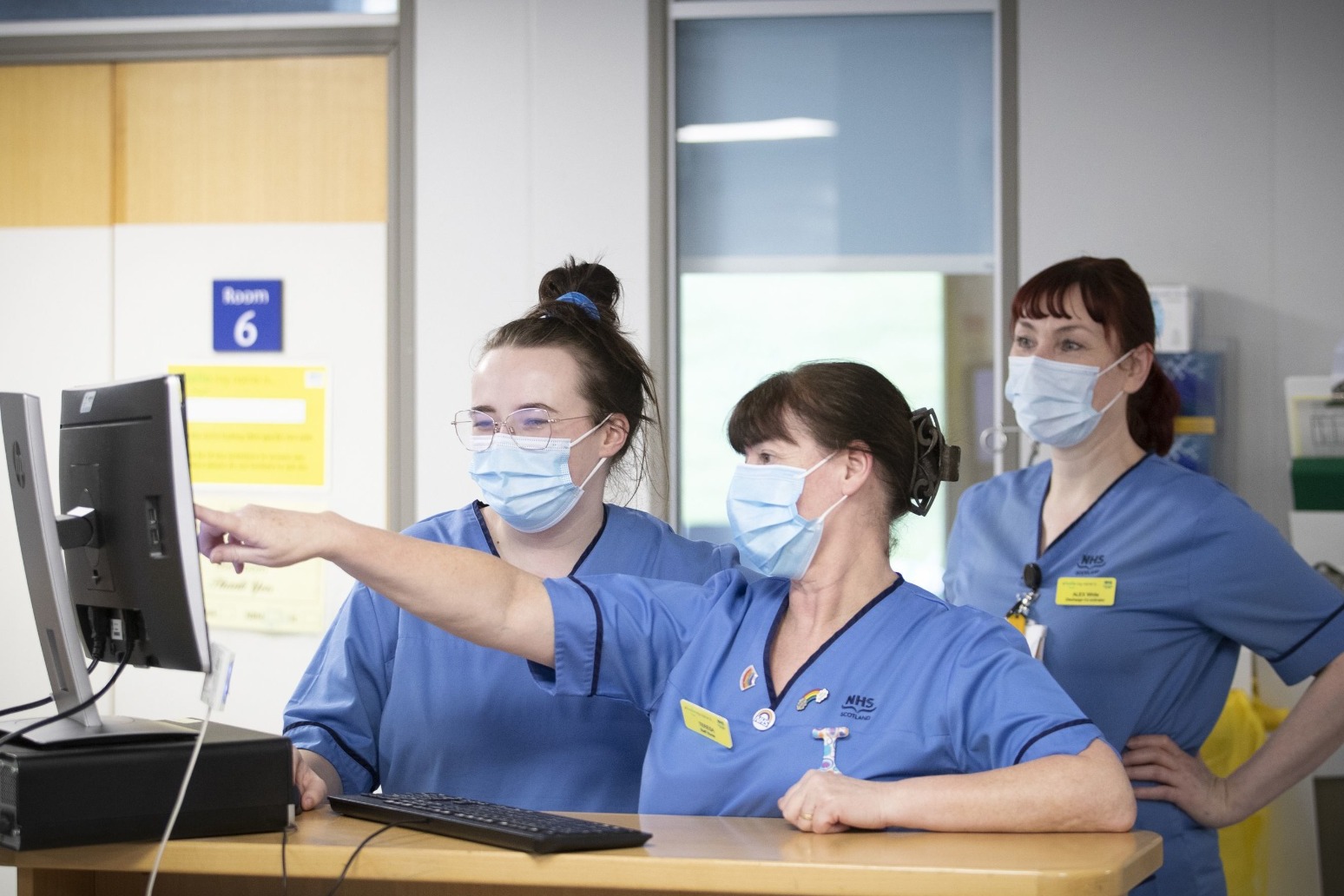
NHS in England ‘could face shortfall of almost 40,000 nurses by 2024’
The NHS in England could face a shortfall of almost 40,000 nurses by 2024, according to new analysis.
Despite numbers of nursing staff increasing, it has been estimated that the health service will be short of 38,000 full-time equivalent registered nurses by 2023/24.
This is despite the expectation that the Government could meet its own target of recruiting an additional 50,000 nurses by the end of the parliament, according to the Health Foundation.
The Government target failed to recognise the increase in demand for care – particularly by people with more complex health needs and among the elderly, the think tank said.
The analysis goes on to suggest that under a “pessimistic” scenario, there would be a shortage of 140,000 nurses by 2030/31.
Leading nurses said this figure was “apocalyptic”.
Under the “current policy scenario” – where current trends continue and nurse workforce policies are unchanged – the shortfall is projected to be 30,300.
The estimates are based on the numbers of staff needed to deliver pre-pandemic levels of care to patients in the health service in England.
Shortfalls will vary in different parts of the country and across different medical specialities, the Health Foundation said.
It warned that the target of recruiting 50,000 more nurses did not consider bringing in nurses to specialities where there are the biggest gaps, including social and community care, nurses working in GP practices and those working in learning disability and mental health services.
Anita Charlesworth, director of research and REAL Centre, said: “Nurses are indispensable to the delivery of NHS care but due to a lack of long-term planning, persistent high vacancy rates mean the NHS cannot deliver the level and quality of care people rightly deserve.
“The NHS in England appears to be on track to recruit the additional 50,000 nurses promised by the Government by 2023/24, but this relies heavily on sustaining historically high levels of international recruitment, very much a ‘quick fix’ and does not replace the need to train and retain more nurses in the UK.
“The 50,000 target is arbitrary and not based on the number of nurses the NHS needs; nor does it ensure that nurses are recruited to the areas and types of care where the need is greatest. 50,000 extra nurses will still leave the NHS almost 40,000 short of what is needed.
“If the new prime minister wants to rebuild the NHS and return it to pre-pandemic levels of care, they need to make nursing a more attractive career choice and put in place a robust, costed long-term plan to address workforce shortages, backed up by independent projections of how many staff will be needed.”
Commenting on the analysis, Patricia Marquis, director for England at the Royal College of Nursing, said: “These projections show the apocalyptic impact inactivity from ministers could have on the NHS in England – a potential shortfall of 140,000 nurses would be devastating for patient care. Now is the time for government to change course.
“For years, ministers have failed to take responsibility for staffing levels in health and social care. There is no alternative to comprehensive long-term workforce planning, that fully takes into account patient needs.
“The report also shows that even with 50,000 more nurses, there will still be a shortfall of tens of thousands. In the last year alone, almost 20,000 nurses left the register in England when we cannot afford to lose a single individual.
“Ministers must heed the warnings in these projections and act decisively with a fully funded health and care workforce strategy.”
Andrea Sutcliffe, chief executive and registrar of the Nursing and Midwifery Council, said: “There are no easy solutions. But the Health Foundation is right to focus on staff recruitment, retention and wellbeing. National and local health and care leaders need to focus on all three if we’re to close the gap between the nurses we’re likely to have and the nurses we’ll need in the years ahead.”
A Department of Health and Social Care spokesperson said: “There are over 9,600 more nurses in the NHS compared to last year, and we are well over halfway towards meeting our commitment to recruiting 50,000 more nurses by 2024, which will significantly increase nursing capacity across the NHS.
“We are working to retain the existing workforce, boost training and education routes into nursing and use international recruitment opportunities to supply the NHS with a long-term sustainable nursing workforce.
“We have also commissioned NHS England to develop a long-term workforce strategy to help provide certainty for the future.”
Published: by Radio NewsHub